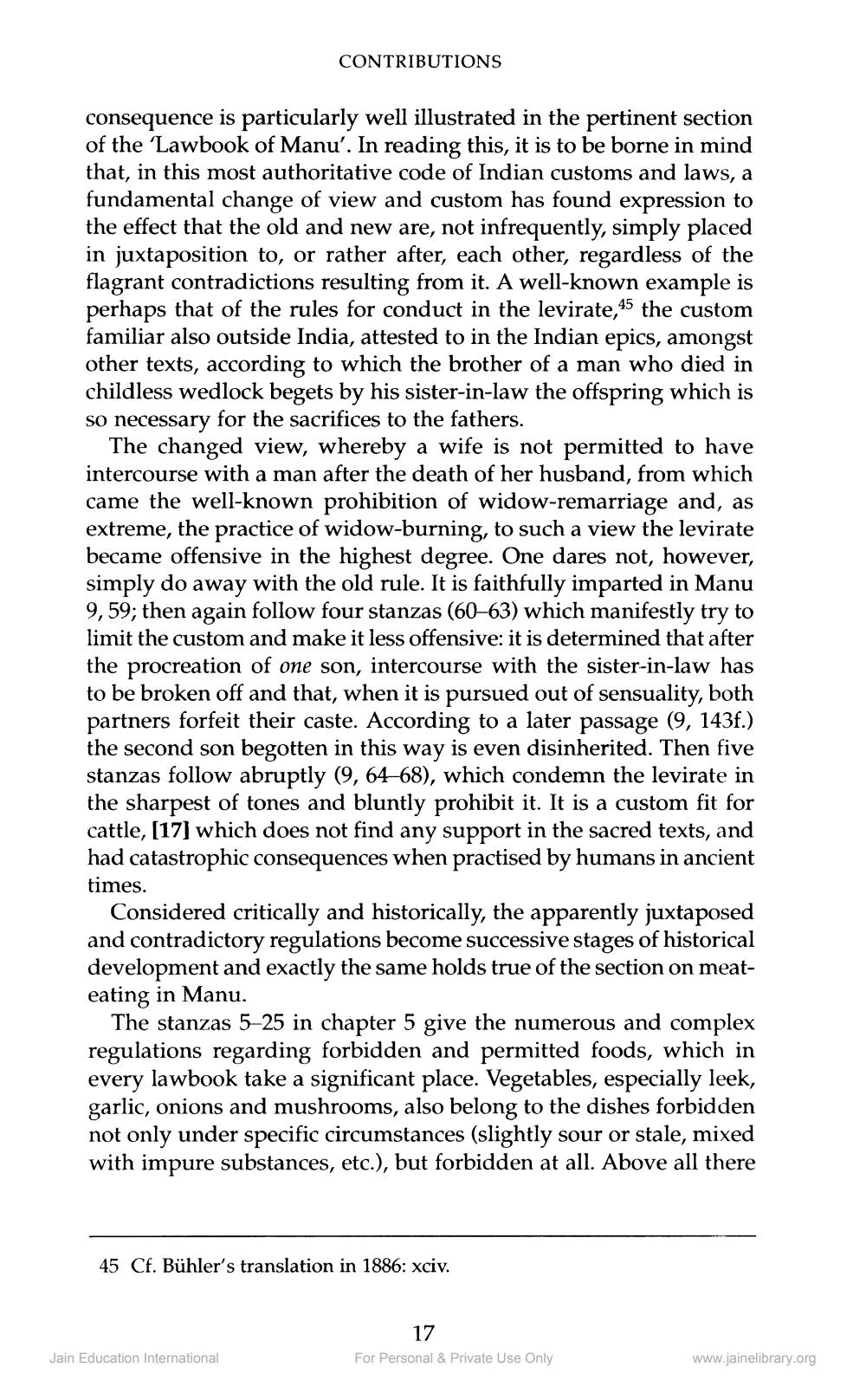________________
CONTRIBUTIONS
consequence is particularly well illustrated in the pertinent section of the 'Lawbook of Manu'. In reading this, it is to be borne in mind that, in this most authoritative code of Indian customs and laws, a fundamental change of view and custom has found expressio the effect that the old and new are, not infrequently, simply placed in juxtaposition to, or rather after, each other, regardless of the flagrant contradictions resulting from it. A well-known example is perhaps that of the rules for conduct in the levirate,45 the custom familiar also outside India, attested to in the Indian epics, amongst other texts, according to which the brother of a man who died in childless wedlock begets by his sister-in-law the offspring which is so necessary for the sacrifices to the fathers.
The changed view, whereby a wife is not permitted to have intercourse with a man after the death of her husband, from which came the well-known prohibition of widow-remarriage and, as extreme, the practice of widow-burning, to such a view the levirate became offensive in the highest degree. One dares not, however, simply do away with the old rule. It is faithfully imparted in Manu 9,59; then again follow four stanzas (60–63) which manifestly try to limit the custom and make it less offensive: it is determined that after the procreation of one son, intercourse with the sister-in-law has to be broken off and that, when it is pursued out of sensuality, both partners forfeit their caste. According to a later passage (9, 143f.) the second son begotten in this way is even disinherited. Then five stanzas follow abruptly (9, 64-68), which condemn the levirate in the sharpest of tones and bluntly prohibit it. It is a custom fit for cattle, [17] which does not find any support in the sacred texts, and had catastrophic consequences when practised by humans in ancient times.
Considered critically and historically, the apparently juxtaposed and contradictory regulations become successive stages of historical development and exactly the same holds true of the section on meateating in Manu.
The stanzas 5-25 in chapter 5 give the numerous and complex regulations regarding forbidden and permitted foods, which in every lawbook take a significant place. Vegetables, especially leek, garlic, onions and mushrooms, also belong to the dishes forbidden not only under specific circumstances (slightly sour or stale, mixed with impure substances, etc.), but forbidden at all. Above all there
45 Cf. Bühler's translation in 1886: xciv.
17 For Personal & Private Use Only
Jain Education International
www.jainelibrary.org




